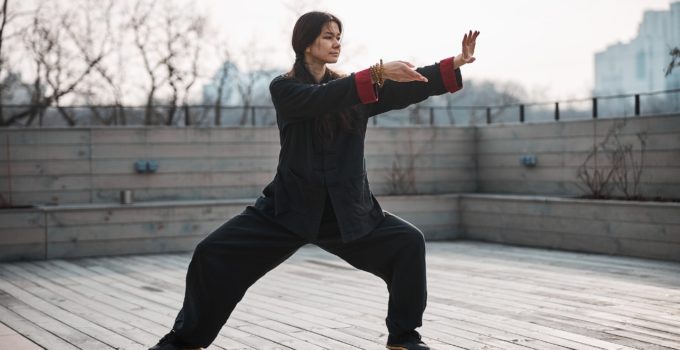Aikido, the Japanese martial art developed by Morihei Ueshiba, emphasizes the harmonization of energy and redirection of force. It is known for its fluid and circular movements, aimed at neutralizing an opponent’s attack. Qigong, on the other hand, is a traditional Chinese practice that involves integrating breathing techniques, focused intention, and gentle movements to cultivate and balance the body’s vital energy, known as “qi.” While Aikido and Qigong have distinct origins and philosophies, they complement each other in several ways, enhancing the practitioner’s overall experience and effectiveness.
Firstly, both Aikido and Qigong emphasize the cultivation of internal energy. In Aikido, practitioners strive to connect with their center and develop a strong internal foundation to effectively execute techniques. Qigong practitioners also focus on cultivating and circulating energy throughout their body. By integrating Qigong into Aikido training, practitioners can enhance their awareness and control of energy, facilitating smoother movements and a deeper connection with their own body.
Secondly, Qigong complements Aikido by promoting relaxation and mental clarity. Aikido requires practitioners to remain calm and centered amidst chaotic situations. Qigong exercises, such as deep breathing and meditation, can help practitioners achieve a state of inner calmness and mental focus. By incorporating Qigong into their training routine, Aikido practitioners can develop a more relaxed and focused mindset, enabling them to respond to attacks with greater clarity and efficiency.
Furthermore, Qigong enhances the health and vitality of Aikido practitioners. The gentle, flowing movements of Qigong promote the smooth circulation of energy and blood, improving overall physical well-being. Qigong exercises also help to strengthen the muscles, enhance flexibility, and increase body awareness. By integrating Qigong into their practice, Aikido practitioners can enjoy improved stamina, enhanced body mechanics, and reduced risk of injuries, allowing them to engage in Aikido training more effectively and sustainably.
Moreover, the philosophies underlying Aikido and Qigong share common principles of harmony and balance. Aikido emphasizes blending with the opponent’s energy and redirecting it, while Qigong seeks to balance and harmonize the body’s internal energy. By practicing both disciplines, practitioners develop a deeper understanding of the interconnectedness of energy and the importance of maintaining balance in all aspects of life. This holistic approach can enrich their Aikido practice, fostering a greater sense of harmony and unity within themselves and with others.
In conclusion, the practice of Qigong can greatly complement Aikido by enhancing energy cultivation, promoting relaxation and mental clarity, improving overall health, and deepening the understanding of harmony and balance. By incorporating Qigong exercises into their training routine, Aikido practitioners can unlock new levels of skill and insight, maximizing the benefits of their martial arts practice. The integration of these two disciplines can lead to a more holistic and transformative journey for those seeking to master the art of Aikido.


